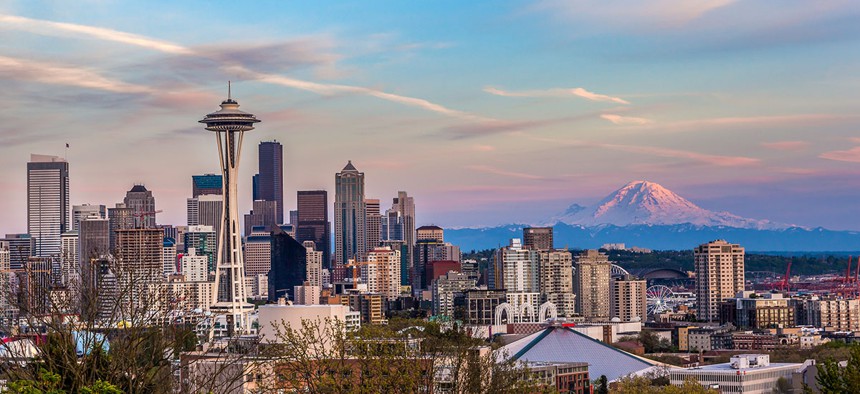Want to Work in Silicon Valley? Move to Seattle

kan_khampanya/Shutterstock.com
The city boasts one of the densest concentration of software developers in the country.
Seattle doesn’t want to grow up to be Silicon Valley. It’s happy just to grab companies with good prospects unwilling, or unable, to pay the high price of expanding in San Francisco and the Bay Area.
A steady parade of tech firms, including some of the giants from Silicon Valley, have set up shop in the Pacific Northwest in recent years. The Seattle area is now home to employees of Google, Facebook, Apple, Twitter, Salesforce, eBay, Dropbox, Uber, SpaceX, Taser, Palantir, Groupon, Hulu, Electronic Arts and Yahoo.
Now, startups are joining them as Bay Area prices and competition, as well as new ways to work remotely, push them northward in search of sustainable growth. Bay Area companies have even been acquiring Seattle startups (Google’s Picnik, or Salesforce’s Thinkfuse, for example) and turning them into outposts without relocating anyone, writes Hadi Partovi, an investor and founder of Seattle-based Code.org.
For many startups, it’s about economics.
“From a competitive and talent availability perspective, Seattle is definitely winning,” says Victor Wong, CEO of Thunder, an advertising production shop competing with Adobe. Thunder, which is based in San Francisco, opened a Seattle office this year and found a huge core of tech workers ready to hire.
“We had to go from having a satellite office to it being an equal,” Wong said.
While Seattle’s engineering salaries are second only to the Bay Area’s, every dollar goes much farther given the 40 percent lower cost of living.
But a dollar in Seattle isn’t what it used to be.
The influx of tech workers for new and old companies is transforming the city—the region will have added an estimated 34,000 new residential units since 2014 by the end of the year. Despite the additional housing supply, rents have been climbing. This year, rent increases in Seattle outpaced that of San Francisco for the first time in more than five years, according to residential real estate site Trulia (although monthly rents are still about half of San Francisco’s $4,075 median).
Seattle trailed Silicon Valley, New York, Los Angeles, Boston Tel Aviv, London and Chicago in the 2015 Compass Global Startup Ecosystem Ranking, which noted the higher rates of venture funding growth and better exit values found in other cities that year.
But Seattle has a few advantages few other cities match. It has one of the densest concentration of software developers in the country, a major research university, and a thriving technology ecosystem anchored by Microsoft and Amazon.
It also has produced technology startups that have returned more money to investors than any comparable city its size, says investor Fred Wilson at Union Square Ventures. (He’s based in New York, and his interest in Seattle is relatively new.)
But Seattle still has a lot of growth in front of it before Silicon Valley has to worry about losing its startup capital crown.
“There’s more venture capital money in one building in Sand Hill [R]oad than in all of Seattle,” Bill Gates reportedly told Microsoft Director Tren Griffin in 1980. You could make a similar argument today. During the first three quarters of 2015, the National Venture Capital Association says, Seattle accounted for $471 million in investment in 56 deals. That’s just behind Oakland ($510 million, 41 deals) and in a different universe than San Jose and San Francisco, which accounted for a combined $13.1 billion in 740 deals during the same time period.





